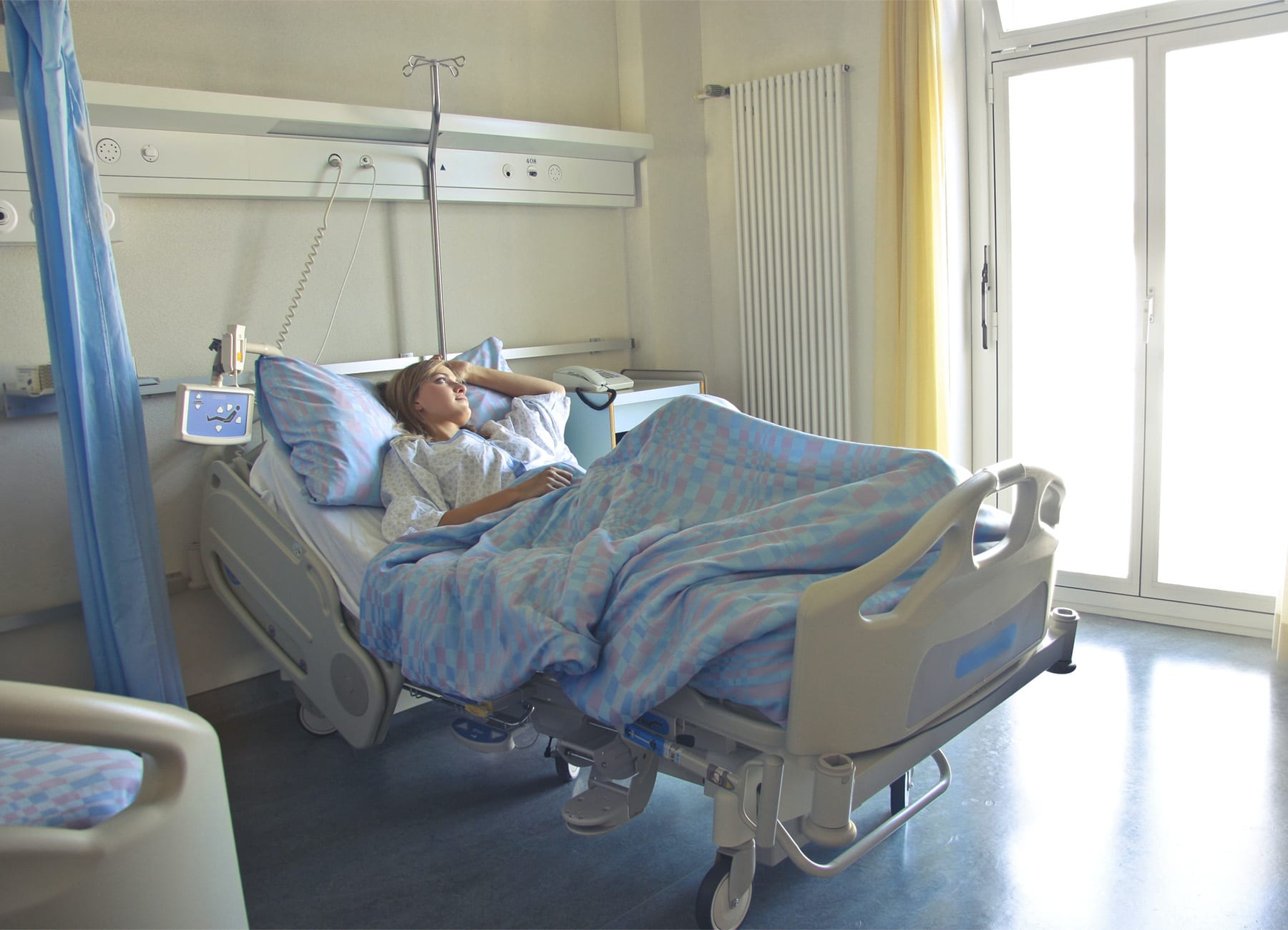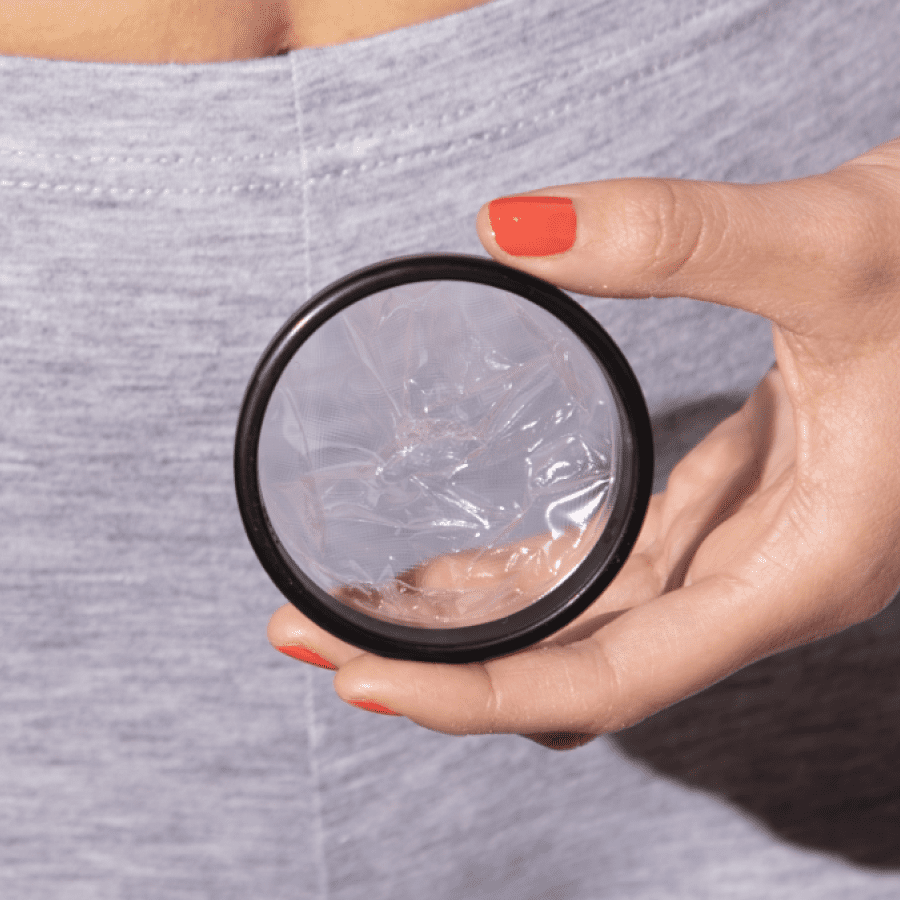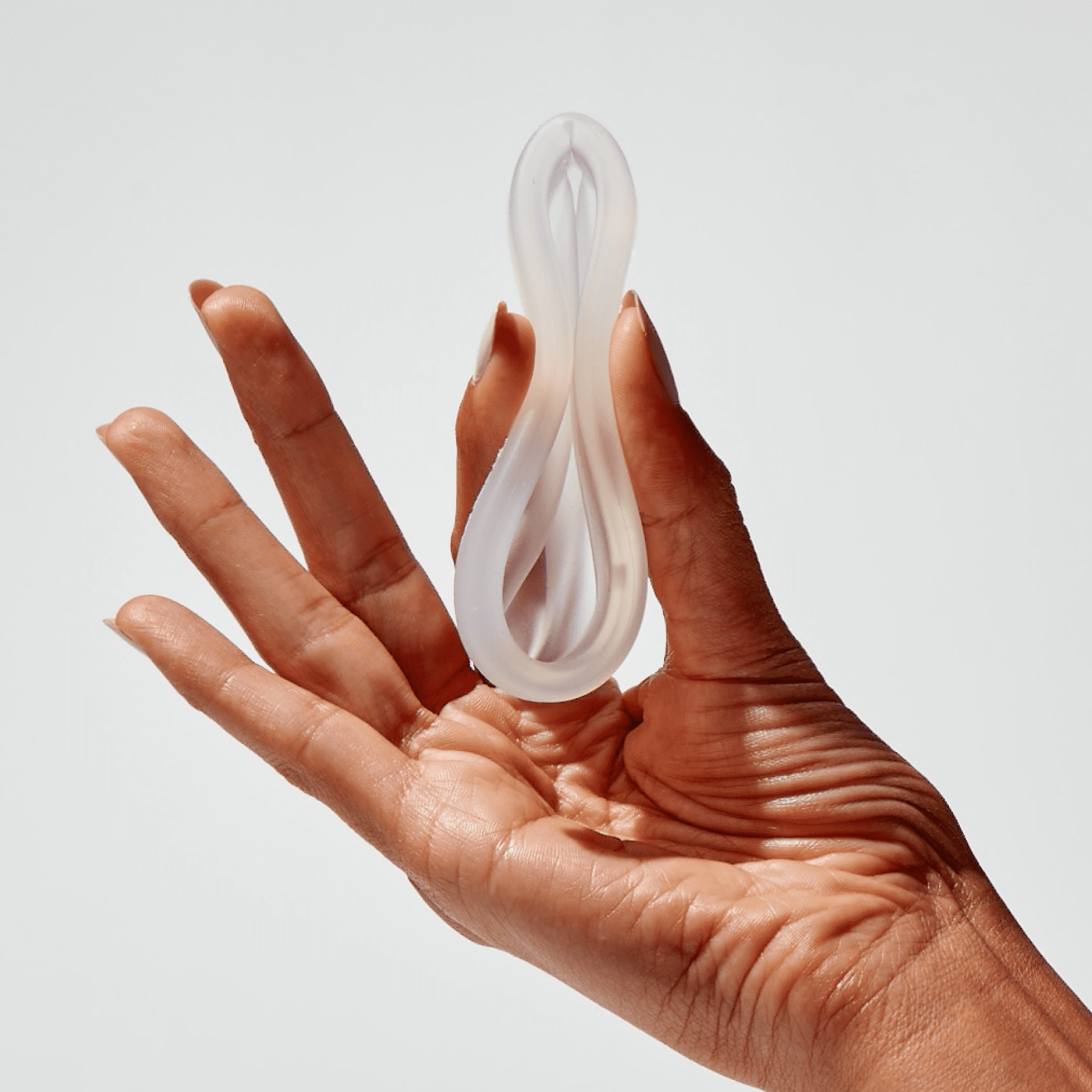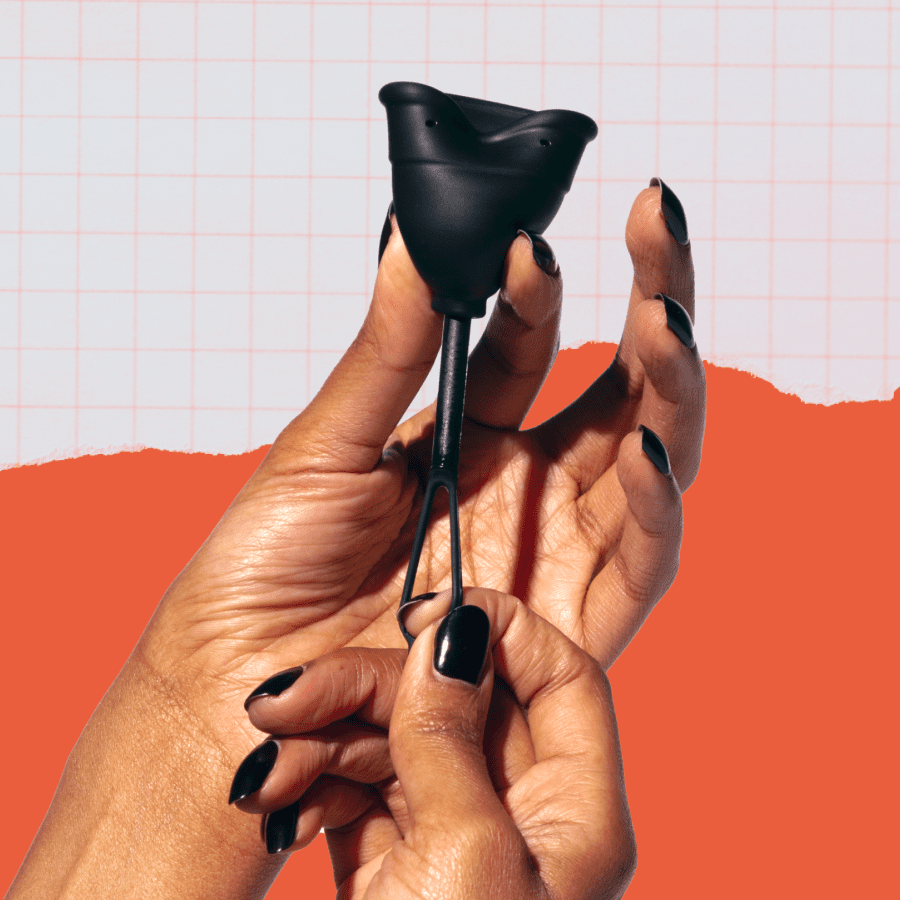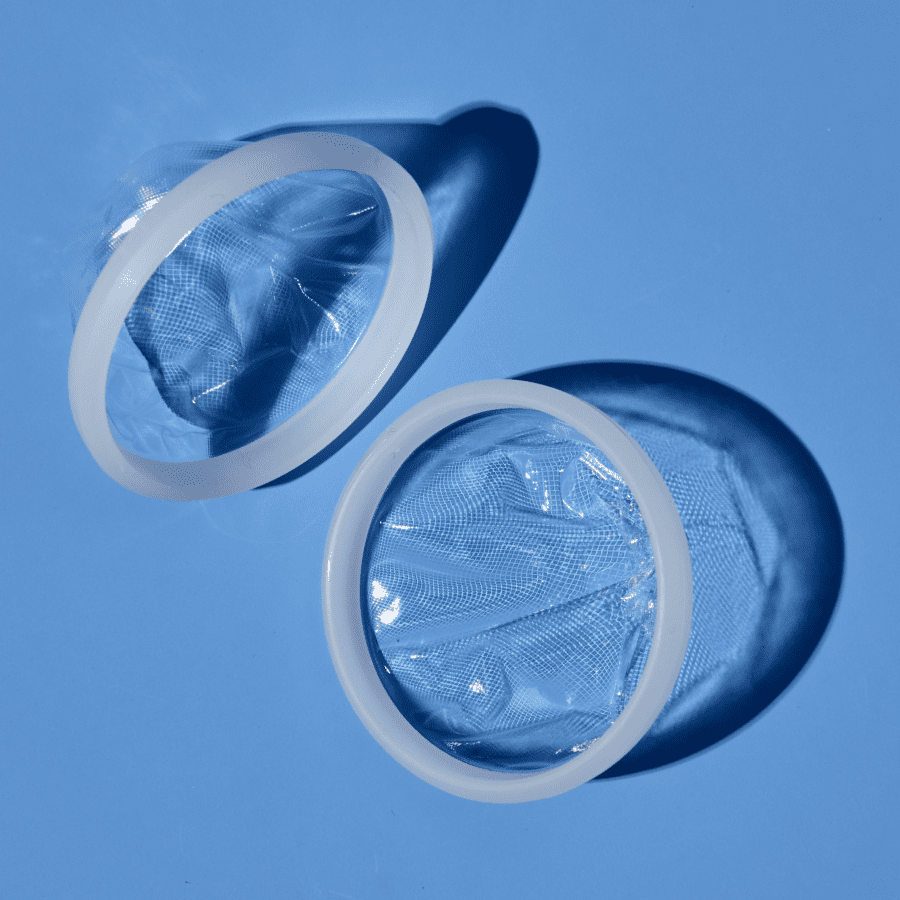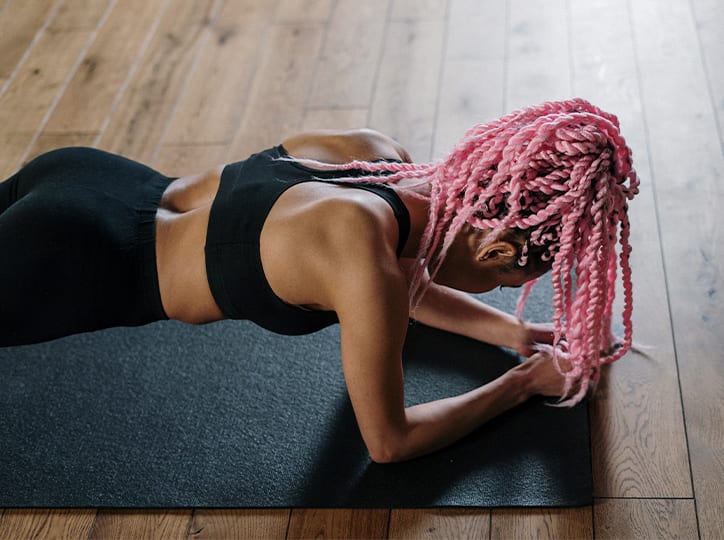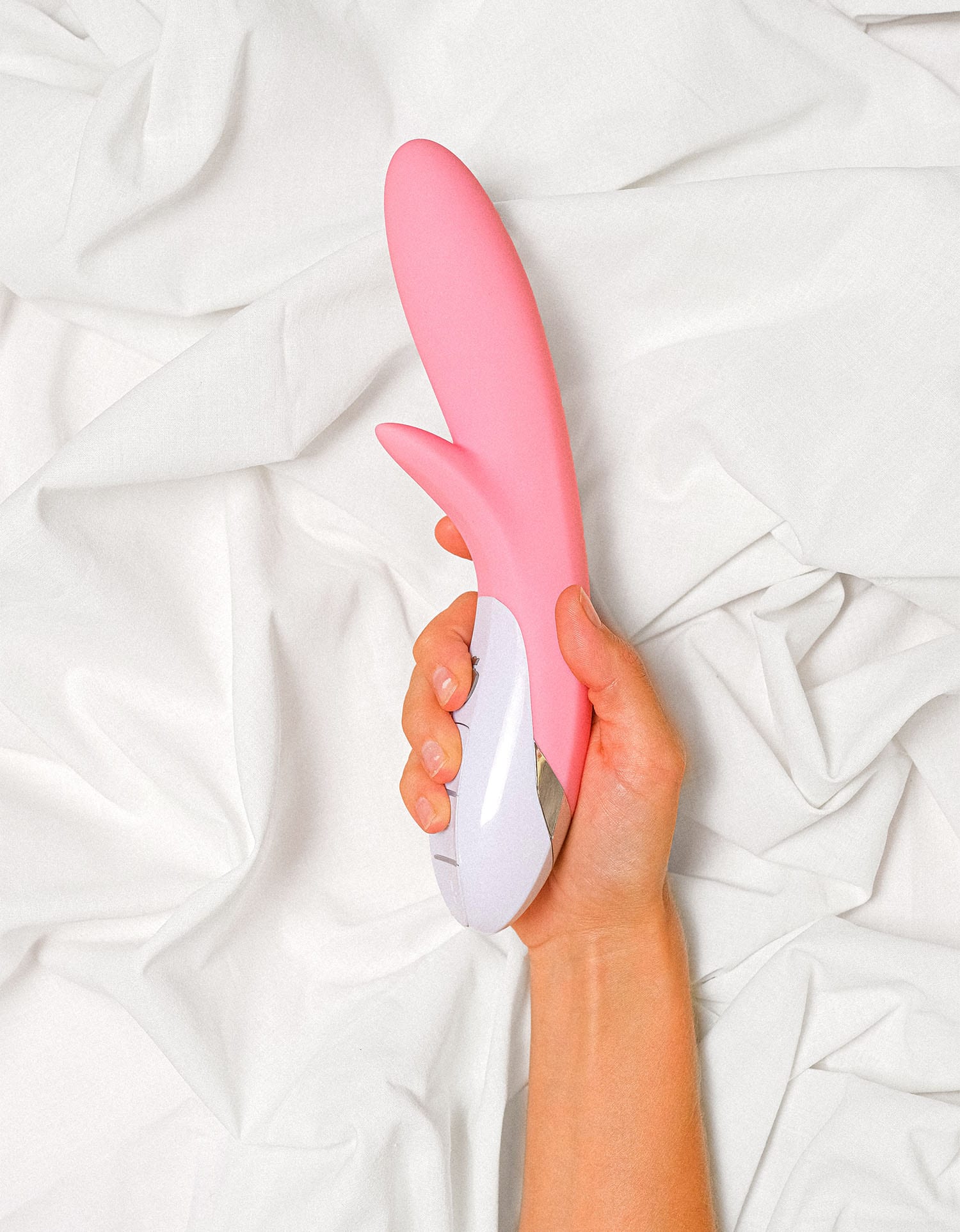Dealing with your period when emergency strikes
Have you ever thought about what you’d do if you had your period while ill or during a major emergency? Let’s get you ready, just in case! Here’s how such events can change your cycle, and how best prep for the possibility of a period while in peril.
We’ll walk you through:
- If you have a cold or flu / a stomach bug or food poisoning
- If you are practicing social distancing or in quarantine
- If you’re stuck in the hospital
- There’s a natural disaster
How illnesses & emergencies affect your menstrual cycle
While not all illnesses and emergencies will impact the menstrual cycle directly, the side effects sure can. Here are three main ways your cycle can be impacted, whether directly or indirectly:
Dehydration. It’s easier to become dehydrated when you’re sick, as you lose more fluids than usual thanks to excess sweating, vomiting, and/or using the bathroom. According to naturopathic doctor and women’s health expert, Dr. Erica Matluck, the body responds to dehydration by doing its best to retain water. This can mean exacerbation of already-uncomfortable period symptoms like bloating and fatigue.
Physical symptoms. Vomiting, diarrhea, extreme coughing…fun times! Not only do these symptoms increase your chances of dehydration as you rid your body of fluids (perhaps from both ends), but your hormones may also take a hit.
Dr. Matluck shares that physical stress can increase cortisol levels, which means a potential suppression of the hormones we need to maintain our cycle: Estrogen and progesterone. So your period may be affected as your body gathers its resources to fight a common enemy.
Emotional stress. The aforementioned scenarios can all be really scary! Dr. Matluck adds that when you feel emotional stress, your nervous system turns on the fight or flight response. As your physiology prepares for survival, reproduction becomes lower-priority. So, it’s common to experience cycle irregularities and/or skipped periods when you’re stressed.
Additionally, in one study, people who reported being stressed out prior to their periods had more severe menstruation symptoms such as cramping, headache, and fatigue, along with more severe psychological symptoms such as anxiety and depression.
Interested in learning about how Covid-19 impacts the menstrual cycle? Read our recent article for research and anecdotal findings.
Here are some things you can do to help support your body during any illness, virus, or emergency.
How to manage your period during the flu or a respiratory virus
Stay very hydrated. Swap your regular water for coconut water for some extra electrolytes. Consuming broth is another great way to support hydration while getting some extra minerals and nutrients.
Take multivitamins. Since your appetite often wanes when you are sick, it can be harder to get all your needed nutrients via your food. Be sure your multi includes Vitamin D, magnesium, and zinc, as these nutrients can all provide some period symptom relief and support your immune system. This works best if you take a multivitamin on the regular, not just when you’re feeling ill.
Rest, rest, rest. Luckily, many people on their periods don’t feel much like running a marathon anyway. Give in! We are often forced to live our lives as usual, even while our uterus is contracting like crazy and blood is coming out of our vagina. Let yourself take this time off. You double deserve it.
Pick your period product wisely. Since we’ve agreed you’ll be resting up, you’ll want to think about which period products will feel uncomfortable to lie in for long amounts of time. For example, how does a period-soaked pad sound? You’ll also want to recognize that body aches and fatigue could make it harder for you to get out of bed to change your period product frequently. If so, tampons may be tough.
Tampons are also easy to forget about, especially with irregular sleep patterns, and it could be easy to leave them in longer than the recommended time by accident. Also worth asking yourself: Do you have enough period underwear or reusable pads to last you without having to do laundry?
Menstrual cups and menstrual discs work nicely when you’re sick because you can wear them for up to 12 hours. Oh, and some report that menstrual discs help with their period cramps, as the flexible material moves with uterine contractions instead of pushing back against them. (6) Huge upside if you’re already suffering from other aches and pains.
Note to anyone using the fertility awareness method of birth control: If you use your temperature to track your menstrual cycle and prevent (or plan for) pregnancy, days you have a fever should be skipped and noted so that they don’t mess with your ovulation calculations.
How to manage your period during a stomach flu or food poisoning
Keep those fluids comin’. Double down on hydration here, as vomiting and diarrhea tend to dehydrate your body quickly, ultimately disrupting its natural rhythm. In addition to trying coconut water, you can also add electrolyte supplements to your H2O. Avoid diuretics like alcohol and caffeine because, well, they’ll work against your hydration efforts!
Pick your period product wisely. With all that vomiting and diarrhea, you will likely be bearing down quite frequently. This pressure may just be too much for your inserted period product to handle, and it could shift to a weird position or fall out completely.
To save your precious period cup from landing in the toilet during a strong bout of diarrhea, you may want to consider a non-inserted product like pads or period underwear. You’ll already be running to the bathroom frequently, so you’ll have plenty of opportunities to swap out as needed. As these bugs tend not to last too long, you may have enough underwear to get you through.
How to manage your period if you’re stuck at the hospital
Communicate with your health team. You may be unable to change your period product on your own. Don’t stress out about it or be embarrassed. They will take care of you, period and all!
Pack your fave period snacks. Depending on the reason for and length of your hospital stay, you’ll most likely encounter the hospital’s food at least once. Your options will be limited, so packing your favorite snacks ahead of time will give you a little piece of home and comfort (and likely be a welcomed break for your tastebuds).
Again, pick your period product wisely. If you are going in for a major surgery or operation, tampons, or other inserted period products like menstrual cups and discs, are typically not allowed. (7) Instead, pads are a great option because the nurse can easily help you change them as needed.
If you prefer organic pads, bring your own. Otherwise, the hospital will have them on hand. Period underwear is another alternative, but make sure you have enough to last you, as laundry won’t be an option (unless you have a family member or friend who can help with it).
If you are not getting surgery and are able to use the bathroom on your own, tampons and menstrual discs are also good choices. We’d steer clear of bringing your menstrual cup to the hospital, as it can become another thing to worry about losing, and it is also harder to ensure its cleanliness over the entirety of your stay.
How to manage your period when prepping for a natural disaster
Emergency preparedness is key as, in the case of a global or natural disaster, you may not have very much time to get things together. Consider putting together a “go bag” if you live in an area prone to disasters like wildfires, hurricanes, or tornados. Check and restock your kit (replace expired items) at least once a year.
Here’s what we’d recommend including in your period + natural disaster survival kit:
- A menstrual cup, just in case, since the same one can be kept for years and worn for 12 hours at a time
- Disposable pads, menstrual discs, and/or tampons
- Vaginal wipes (bonus points if they’re biodegradable and safe for your entire body)
- Multipurpose soap (oil and fragrance-free, if possible, to use to clean your menstrual cup, your body, and even your clothes)
- 5-10 pairs of clean underwear and a comfortable change of clothes
- A warm jacket, sweatshirt, or blanket
- Over-the-counter medications including NSAIDs, Pepto-Bismol, and Benadryl
- Roll of toilet paper and/or paper towels
- First aid kit
- Bottled water
- Matches
- Shelf-stable food items (nothing that expires in less than a year)
- Spare phone charger
- A flashlight + spare batteries
- Disposable and/or reusable face coverings (masks)
Keep in mind that resources such as fresh water and privacy may be limited, and your risk for infection potentially higher (if you are inserting products inside of you).
It may be that you are unable to use period products at all. If this is the case, free bleed, baby! If you don’t have access to resources like waste disposal or clean water, free bleeding may be your best bet to stay healthy and infection-free.
If you’re left with zero period products but aren’t comfortable free bleeding, DIY period products can be made from toilet paper or paper towels, a clean sock, gauze from a first aid kit, cotton balls, or anything else that is relatively absorbent. Get creative!
